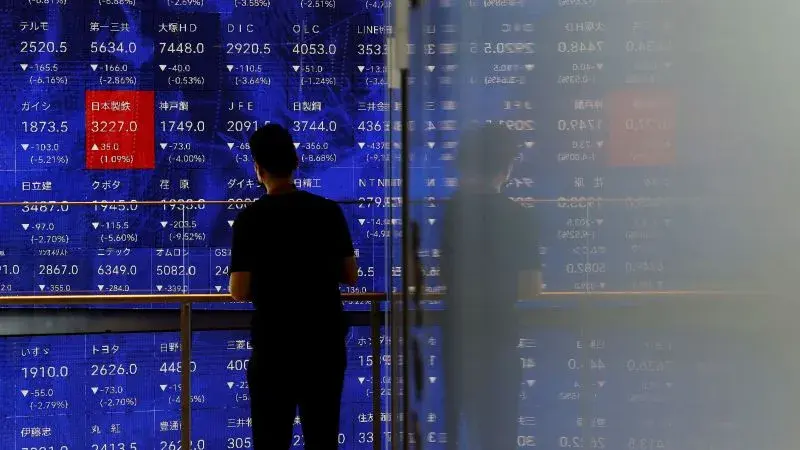US stocks plunged on Monday morning as Friday’s dismal July jobs report continued stoking fears that the US economy is on shaky legs.
The Dow plunged 1,072 points, or 2.7%. The S&P 500 fell 4.1% and the Nasdaq Composite sank by a whopping 6.3%.
The Cboe Volatility Index, or VIX, which measures bets on expected stock market volatility, surged to 55. The last time the fear gauge hit that level outside of the pandemic was the Great Financial Crisis, in 2008.

lmao
Are the plutocrats going to crash the economy every time a black Democrat gets close to the presidency?

In this case, from my understanding, it has more to do with the Bank of Japan rasing interest rates a small amount (.15%), forcing some people who were barrowing yen to invest in stocks (called the Carry Trade) to exit their positions. And because they needed to buy yen to pay back the loans, the yen strengthened vs the US dollar, which forced more people who were investing using barrowed yen to do the same thing, creating a feedback loop of people selling stocks at lower and lower prices as they rushed to be the first to sell and beat the strengthening yen, etc. Since the Carry trade is worth something like 20 Trillion USD, this has had massive effects on the Asian and US stock markets.
All of this has happened before and all of this will happen again.

Yeah, the yen is absurd. If the Bank of Japan did nothing, it would have resulted in massive anger among the Japanese people. For context, several years ago, the exchange rate was around 110. Then it went up and up, to around 160. Everything depending on imports rose in price (i.e., 50% up), but wages barely moved. That, my friends, is an unstable setup.
Probably, but for average joe investors like me, it’s nice to be able to pick up some shares at a discount.

This happens every time I set up automatic deposits into an investment account without fail. I’m already contributing heavily to a 401k and won’t be retiring any time soon, but whenever I set up this “side” account stocks plunge.
Super annoying

Wouldn’t you want to buy more during a plunge anyway? But low sell high and all that

I think they mean that they auto bought right before the plunge and are now frustrated because if they had procrastinated a few more days they would now be in a position to buy low with the same money.
That being said, trying to time the market tends to be a losing game for retail investors, as statistically the market is more likely to rise than fall, so earlier is better unless you have better information than the people paid full time to study the market have.

Yes, that’s exactly what I meant.
To your second point, I’m not trying to time the market too much and am kind of against it myself.
My point was just that it’s frustrating that things tank right after buying, but I’m not so impatient as to try to “fix” it by selling now and losing funds.


